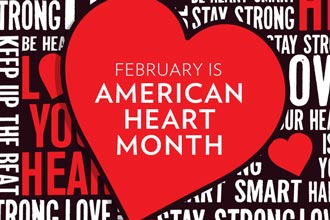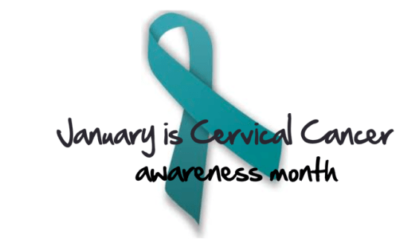
Credit: Womensday.com
A HEART TO HEART ABOUT CARDIOVASCULAR DISEASE
Knowledge is power, especially when it comes to our health. Take heart disease, for example. What you don’t know can prove fatal. Problems affecting the heart and its blood vessels are the number one killer of women in the United States. Even with these numbers, barely a third of African-American women are aware. Similarly, while half of all African-American women have heart diseases, only one in five believe they are personally at risk.1
Cardiovascular diseases kill nearly 50,000 African-American women2 each year – more than all other women – but it doesn’t have to be a death sentence. We can reduce our risk by understanding what causes heart disease, recognizing the symptoms, and taking proactive steps to prevent it. Simply put, it’s time to educate ourselves. Knowledge is power and in this case, it may save our lives.
WHAT CAUSES HEART DISEASE?
According to the American Heart Association, heart disease can take a variety of forms.
Atherosclerosis, also known as Coronary Heart Disease, is the most common form of cardiovascular disease. It develops when plaque attaches itself to the walls of the arteries. A plaque buildup can cause the arteries to narrow, making it harder for blood to flow through and easier for the blood to clot. When this happens, it can stop the flow of blood and lead to a heart attack or stroke.
Heart failure or congestive heart failure occurs when the heart is still working, but it isn’t pumping blood effectively or getting enough oxygen.
Arrhythmia is associated with a fast, slow, or irregular heartbeat. This can affect how well the heart is functioning and whether it can pump enough blood to meet the body’s needs.
Heart valve problems can lead to the heart not opening enough to allow proper blood flow. Sometimes the heart valves don’t close and blood leaks through, or blood flows backward into the upper chamber.
WHO IS AT RISK?
Black women are twice as likely to suffer from heart disease as their white counterparts. Why? Well, for starters:
- Nearly half of Black women have total cholesterol levels that are too high.
- Nearly 80 percent of African-American women are overweight or obese.
- Fifty-five percent of Black women are physically inactive.
- Thirty-seven percent of African-American women have high blood pressure.
- One in five Black women smoke.3
These factors, along with diabetes, aging and a lack of awareness increase our risk of developing cardiovascular problems.
WARNING SIGNS
Heart disease is often referred to as the “silent killer.” So how do you know if you are having a heart attack or cardiovascular distress? Women’s symptoms are very often different from those of men. For women, discomfort, or pain in the center of the chest that lasts more than a few minutes or comes and goes is a common symptom, and while sharp chest pains are a common symptom for men, women often encounter:
- Pain that spreads to the shoulders, stomach, neck, or arms.
- Lightheadedness, fainting, sweating, nausea or shortness of breath.
- Shortness of breath or trouble breathing.
- Sudden anxiety, weakness, or fatigue.
IMPORTANT! If you experience any of these symptoms or think you may be having a heart attack, don’t delay. Call 9-1-1, within five minutes, or less.
HOW TO LOWER YOUR RISK
Here are some proactive steps that you can take to embrace a healthier lifestyle and reduce your risk of developing heart disease:
- Eat healthily – limit the amount of salt and sodium you consume. Plan well-balanced meals that are low in fat and cholesterol and heavy on the fruits and vegetables.
- Get moving! – Commit to adding 30 minutes of moderately intense exercise like walking, dancing, or aerobics to your daily routine at least five times a week.
- Manage your blood pressure, sugar, and cholesterol levels and make a note of what is considered the healthy range.
- Maintain a healthy weight.
- Limit your alcohol intake. For women, this means one drink a day.
- Don’t smoke, and if you do, quit. Research suggests that one year after you stop smoking, the risk of heart disease drops by over 50%.
- Familiarize yourself with the risk factors and symptoms of heart disease and contact your doctor if you experience any of them.
MORE INFO PLEASE
To learn more about heart disease, visit the following websites:
American Heart Association:
www.goredforwomen.org/about-heart-disease/facts_about_heart_disease_in_women-sub-category/african-american-women/
Black Women Health Imperative:
www.bwhi.org/issues_and_resources/heart-disease-and-black-women-the-silent-killer-that-speaks-volumes
U.S. Department of Health and Human Services: National Heart, Lung and Blood Institute
https://www.nhlbi.nih.gov/health/educational/hearttruth/downloads/pdf/factsheet-actionplan-aa.pdf
Center for Disease Control and Prevention:
https://www.cdc.gov/dhdsp/data_statistics/fact_sheets/fs_aa.htm
♦♦♦
1https://www.goredforwomen.org/about-heart-disease/facts_about_heart_disease_in_women-sub-category/african-american-women/
2Ibid
3https://www.nhlbi.nih.gov/health/educational/hearttruth/downloads/pdf/factsheet-actionplan-aa.pdf
OTHER NEWS
FEBRUARY IS AMERICAN HEART MONTH
This year, as our hearts fill with pride while we celebrate Black History Month, let us also remember to focus on our heart health. And not just on Valentines Day – the entire month of February is American Heart Month.
Heart disease is the leading cause of death for men and women in the United States and certain minority groups face a greater risk than others. Deaths from heart disease are higher in Black Americans than in White Americans and other ethnic groups, and heart disease develops at a younger age in African Americans.
But, heart disease can often be prevented when people know their risks, make healthy choices and manage their medical conditions. So this month, learn the signs and symptoms and the steps you can take to make a difference in your life and the lives of your loved ones at https://www.goredforwomen.org
January is Cervical Cancer Awareness Month
According to The American Cancer Society, “Cervical cancer was once one of the most common causes of cancer death for American women. The cervical cancer death rate dropped significantly with the increased use of the Pap test for screening. But the death rate has not changed much over the last 15 years.” And several studies show that a disproportionate number of women that die each year from cervical cancer are Black women.
The American Cancer Society also stresses the importance of regular screening for the disease, emphasizing that, “Screening tests offer the best chance to have cervical cancer found early when successful treatment is likely.
I AM THE CHANGE FORUMS
The Black Women’s Agenda, Inc. is taking its “Living Your Best Life At Every Age: I Am The Change” town hall on the road! Introduced with support from AARP at its 41st Annual Symposium in September 2018, the forum encourages participants to consider where they are and want to be from a financial, educational and health perspective, and to be a catalyst for change for themselves, their families, and communities.
© 2025 The Black Women’s Agenda, Inc. All Rights Reserved. Privacy Policy








